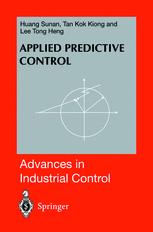

Most ebook files are in PDF format, so you can easily read them using various software such as Foxit Reader or directly on the Google Chrome browser.
Some ebook files are released by publishers in other formats such as .awz, .mobi, .epub, .fb2, etc. You may need to install specific software to read these formats on mobile/PC, such as Calibre.
Please read the tutorial at this link: https://ebookbell.com/faq
We offer FREE conversion to the popular formats you request; however, this may take some time. Therefore, right after payment, please email us, and we will try to provide the service as quickly as possible.
For some exceptional file formats or broken links (if any), please refrain from opening any disputes. Instead, email us first, and we will try to assist within a maximum of 6 hours.
EbookBell Team

4.4
42 reviewsThe presence of considerable time delays in the dynamics of many industrial processes, leading to difficult problems in the associated closed-loop control systems, is a well-recognized phenomenon. The performance achievable in conventional feedback control systems can be significantly degraded if an industrial process has a relatively large time delay compared with the dominant time constant. Under these circumstances, advanced predictive control is necessary to improve the performance of the control system significantly.
The book is a focused treatment of the subject matter, including the fundamentals and some state-of-the-art developments in the field of predictive control. Three main schemes for advanced predictive control are addressed in this book:
• Smith Predictive Control;
• Generalised Predictive Control;
• a form of predictive control based on Finite Spectrum Assignment.
A substantial part of the book addresses application issues in predictive control, providing several interesting case studies for more application-oriented readers. Thus, while the book is written to serve as an advanced control reference on predictive control for researchers, postgraduates and senior undergraduates, it should be equally useful to those industrial practitioners who are keen to explore the use of advanced predictive control in real problems. The prerequisite for gaining maximum benefit from this book is a basic knowledge of control systems, such as that imparted by a first undergraduate course on control systems engineering.
Advances in Industrial Control aims to report and encourage the transfer of technology in control engineering. The rapid development of control technology has an impact on all areas of the control discipline. The series offers an opportunity for researchers to present an extended exposition of new work in all aspects of industrial control.